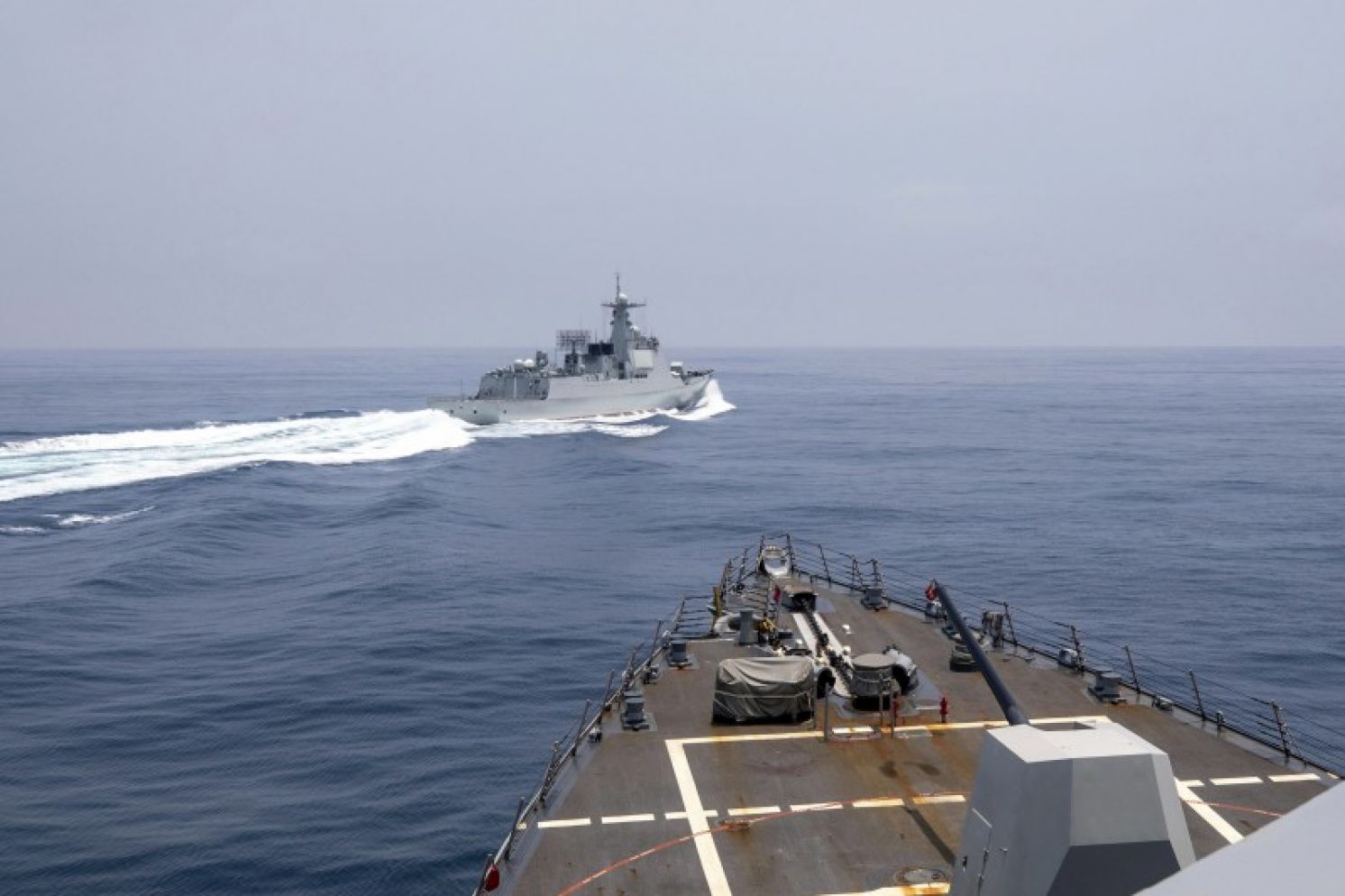
This Week in Taiwan 0604-0610
June 4: The United States Indo-Pacific Command indicated that when the missile destroyer USS Chung-Hoon, DDG-93, and Royal Canadian frigate Montreal crossed the Taiwan Strait on June 3, China's missile destroyer Suzhou approached the USS Chung-Hoon in an unsafe manner and cut across in front of the U.S. vessel's bow at a distance of 150 yards. Captain Paul Montford, commander of the Montreal, stated that the Chinese ship deliberately cut into the front of the USS Chung-Hoon. Mainland Chinese Minister of National Defense Li Shangfu countered that the other party was not engaging in "innocent passage," and the purpose of the mission was to provoke.
June 4: According to military sources cited by the China Times, the "Taiwan-Japan Strategic Dialogue" was held in Taipei for the first time in the middle of May. The entire proceeding was highly secretive and the two sides conducted a wargame simulation based on various conditions before a possible cross-strait military conflict. This alleged event would be the largest political and military wargame between Taiwan and Japan in recent years and is also likely the first official political and military wargame simulation. The Ministry of National Defense, however, denied related reports entirely.
June 5: Wang Huning, chairman of the Chinese People's Political Consultative Conference and Communist China's second-in-command on Taiwan affairs, met with New Party Chairman Wu Cheng-tien in Beijing. During his remarks, Wang stated that the mainland insists upon the "One China" principle and the "1992 Consensus." Taiwan independence, according to Wang, is a serious crime of separatism and will only bring disaster to the Taiwan compatriots. Director Song Tao of the Taiwan Affairs Office, State Council, stated during a seminar that the 1992 Consensus is the only way to break the current deadlock in cross-strait relations. Cross-strait negotiations can be carried out step by step and in stages, and the means can be "flexible and diverse."
June 6: The Hankuang 39 exercise of the Armed Forces will be held on July 27. For the first time, anti-airborne and airport retake exercises will be held at the civilian Taoyuan International Airport. It is reported that the American Institute in Taiwan has requested that the National Security Council and Ministry of National Defense (MND) properly carry out this exercise, and civil aviation organizations have been under pressure. But the MND denies U.S. involvement. After coordinating with the terminal, the military decided to reduce the scope of the exercise.
June 6: Chairman Mark Liu of the Taiwan Semiconductor Manufacturing Company (TSMC) stated at the shareholders meeting that according to the government, there will be no power shortage in 2025, and "We can only believe it." The development of renewable energy in Taiwan is too slow, and the lack of renewables prevents businesses from successfully fulfilling net-zero carbon emission standards. Businesses also face pressure from other countries which will impose carbon taxes that will affect competitiveness. He suggested that the government re-examine its energy policy and find new ways to invest in renewable power projects so that companies can compete with the world.
June 7: The American Chamber of Commerce in Taiwan (AmCham Taiwan) released its 2023 White Paper which contains harsh words on the government's energy policy. According to the White Paper, Taiwan's energy transition progress is far behind, which not only affects industrial development but also affects national security. AmCham Taiwan calls upon the government to devise a policy blueprint for a sufficient and stable power supply.
June 8: A kindergarten in New Taipei was accused of letting disobedient children take sleeping pills. The New Taipei City Government expanded the investigation and found that eight school children had trace amounts of the level 3 controlled drug "barbiturate" in their bodies. Kuomintang (KMT) presidential candidate and New Taipei Mayor Hou Yu-ih bowed twice to apologize for his failure to protect the children. The controversy may affect Hou's popularity.
June 8: Executive Director Hsiao Hsu-tsen of the Ma Ying-jeou Foundation stated that the former president had planned to apply for mainland Chinese students to visit Taiwan, but in private communication, Hsiao was told by the Mainland Affairs Council (MAC) to not send applications because they won't pass. Former President Ma wanted to communicate with Minister Chiu Tai-san directly but was rejected. The MAC further stated that it is not the competent authority and does not know who the competent authority is. According to the MAC, it responsibly and faithfully reminded that if the purpose of the visit is educational exchange, then the itinerary should be mainly educational.